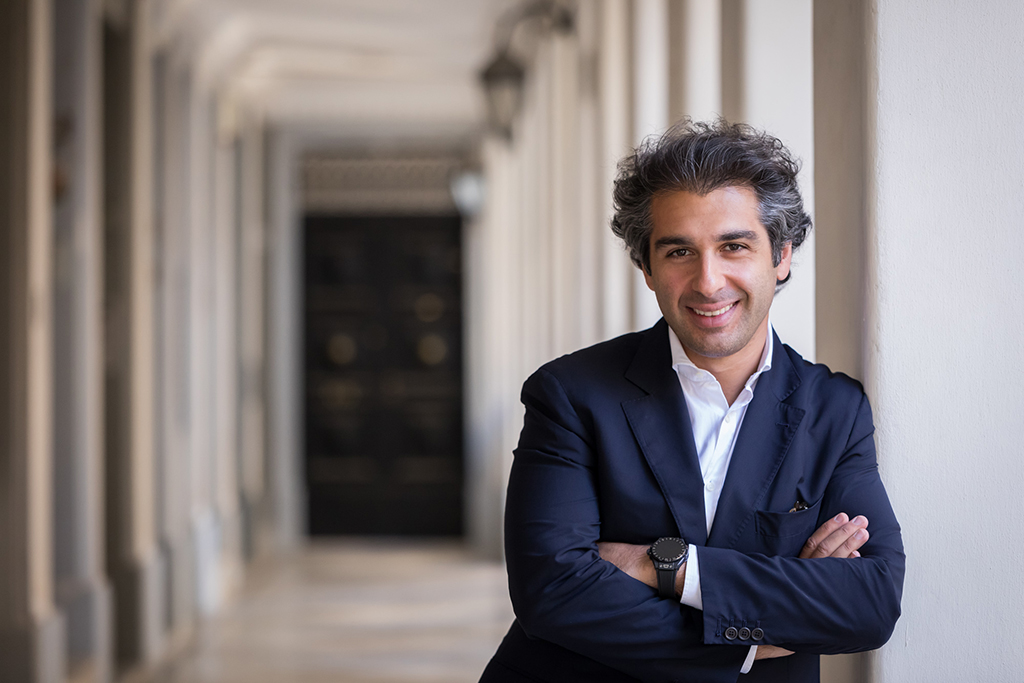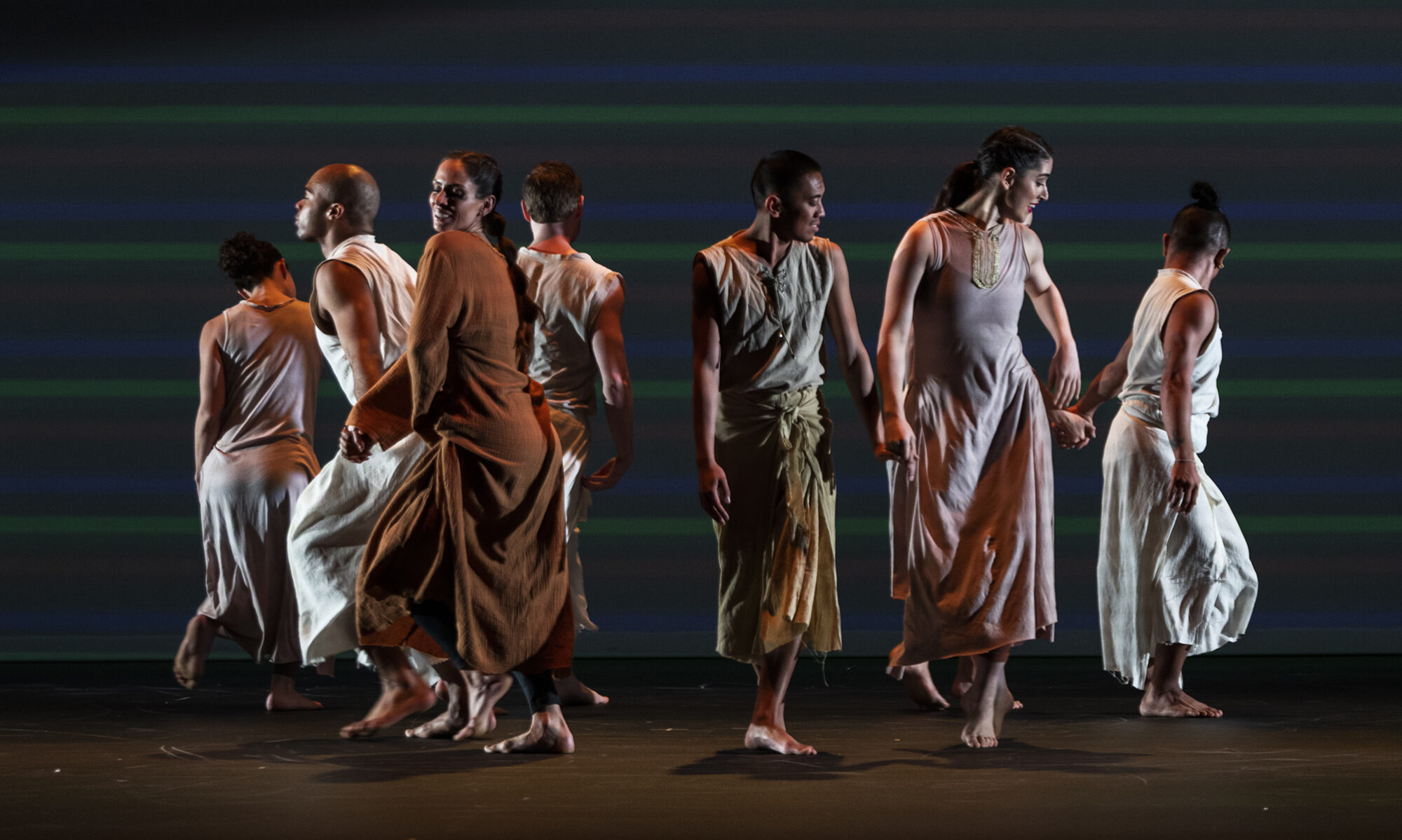Classical music in Armenia

Sergey Smbatyan was born in Yerevan in 1987, into a family of musicians. A lifelong advocate of music education and social development through art, Sergey himself started his early musical career as a violinist. Since then, he has turned his hand to conducting and has founded four local and international festivals, an international music competition, five orchestras, and seven educational projects. Sergey has been Principal Conductor of the Malta Philharmonic Orchestra since September 2019. In 2015 he became the youngest ever worker in the field of the arts and the first Armenian to be appointed Chevalier of the Order of Arts and Letters by the French Ministry of Culture. Maestro Smbatyan has conducted orchestras in many of the most prestigious concert halls around the world, including and not limited to Vienna’s Musikverein, the Berlin Philharmonie, Salzburg’s Großes Festspielhaus, the Barbican Hall in London, Moscow’s Zaryadye Concert Hall, the Gasteig Munich, Stuttgart’s Beethoven Hall, Prague’s Rudolfinum, LSO St. Lukes, and Carnegie Hall in New York.
Bridging and connecting two continents, Armenia is a small country that has a rich history and a strong culture. Classical music enjoys a special status there. To understand its background better, Sergey Smbatyan – a talented young Armenian conductor who has founded four festivals in the country – discusses classical musical there, his view and the activities he organises to carry on the tradition.
Classical music in Armenia is something very special and organic. The roots go back to the Soviet Union period. Armenia was one of the countries where you can find a piano in almost every house. Children had musical education in schools about classical music in general. There were some 275 music schools, which is a huge number for a little country like Armenia. For Armenian kids, notes were like a second alphabet: 80% knew how to read notes.
The legacy in contemporary times
Today, even if these figures have decreased, the love and respect for classical music remain very high. Classical musicians in the country are acclaimed and concerts often take place with a full house. There is a great tradition and a devoted audience. The genre is not only seen as a profession, it is a part of general education. All kids know who the famous composers are.
Sergey Smbatyan grew up with this legacy and showed great ambition from an early age. He started his musical career as a violinist and then decided to study conducting. He wanted to understand why his teacher, Yuri Davtyan, told him, “no, it’s impossible,” during a rehearsal, when Sergey asked if the orchestra could phrase the music differently by taking it a little slower. His development was largely due to the Armenian Youth Orchestra that he founded in 2006 when he was eighteen years old, which became the Armenian State Symphony Orchestra two years after. Sergey also created four local and international festivals: the Armenian Composing Art Festival, the Khachaturian International Festival, the “Armenia” International Music Festival and the Contemporary Classics Composers’ Festival.
With such achievements, Sergey Smbatyan is undoubtedly linked to the contemporary history of music in his country. “My vision is that we have our own identity: We have our music and our symphonic harmonisation. The DNA is something very important for me as a musician,” he says. The contemporary repertoire is important to him. “Leading orchestras through contemporary composers is not the easiest challenge but we did it because it is important for us, for our society, for our composers, for our repertoire, for our storytelling and for our message to the world.” This is the reason why Sergey is so attentive to new works, new composers and performers and to build on the classical music’s past.
New audiences and transmission
In his everyday’s work, the maestro is surrounded by a young team of talented personalities, “a big family”, who share the same global vision. A significant part of their work is dedicated to winning new audiences and to educational projects. They have created projects for schools and for children in order to attract a younger audience. “We have a responsibility here”, asserts Sergey.
When he started, the audience that was following the Orchestra was mostly over fifty, as it often is anywhere else. In Armenia, thanks to the legacy of the past and all the projects happening in schools, which promotes classical music concerts, the average audience age is now twenty-five and over. The orchestra has managed to increase audience numbers in the country and is now developing community networks to keep these figures growing. The team also has the ambition to increase the audience internationally. It have incorporated artificial intelligence into some of their events and will continue to build on technologies to nourish and expand their projects; a topic definitely worth another article in Eye-to-Eye in the near future.
When going into schools, the main message that Sergey and his team conveys is that classical music is interesting and that it is fun. DasA (Lesson A) is one of the seven educational projects they have initiated. ‘A’ is the first letter of all alphabets and the note ‘A’ is the most organic sound you can produce physically and that can be found in music all over the world [It is also the note to which an orchestra tunes up]. Lesson A is a high school project for youngsters from 13 years old that aims to start a dialogue with students and offer them hands-on experience of making classical music. “We have a big agenda and a great set up with special playlists, new technologies, musicians joining the lessons, etc.,” Sergey says. The idea is to teach students how they should hear the music in general. That is how you open the doors. “You need to tell the story, reveal the fairytale and the heroes behind.” In practice, children will attend concerts after the lessons that present a brief story of what they will see and hear and after the concerts. There is a conversation to debrief about what they have heard, how they lived the experience, and what they think about the artists.
Sergey has developed other projects like Symphonic Jackson, Khachaturian jazz, Symphonic rock and projects around pop songs, cartoons and Armenian film music. All of them serve to build new audiences, to bring young people on board and make them attend concerts of orchestras. “My dream is that these kids will then believe in the magic of classical music and attend concerts 2 or 3 times per year”, confesses Sergey; a dream that is shared by many artists and professionals in the sector and that seems to have a chance of coming true in Armenia.
Interview and article by Audrey Brisack
Festival Life creates shared moments of audiences and artists, eye-to-eye


